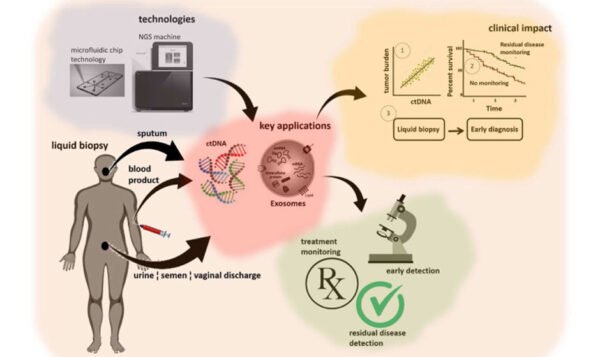When Feeling Off Becomes the Norm: What Your Body Might Be Telling You

You’re not lazy, dramatic, or just tired—something doesn’t feel right, and you know it. If you’re always brushing off weird symptoms because they’re “not that bad,” you’re not alone. Mild issues like fatigue, bloating, or mood swings may seem normal, but they often point to something deeper. Over time, they pile up and leave you feeling drained and confused.
This article breaks down common signs that things might be out of balance—and why paying attention could lead to real answers. It’s time to stop ignoring the signs and start asking the right questions.
Constant Fatigue That Doesn’t Improve With Rest
If you’re getting enough sleep but still feel exhausted, something’s off. That kind of fatigue isn’t about laziness or a bad night’s sleep—it’s a sign that your system is overworked or not functioning the way it should. You might wake up tired, feel wiped out after small tasks, or hit a wall by mid-afternoon. This type of tiredness can be tied to things like inflammation, nutrient absorption issues, or hidden imbalances. If your energy has been missing for weeks or months, don’t ignore it—it’s worth investigating.
You Might Be Missing the Big Picture on Immune Wellness
You might be feeling tired, foggy, bloated, or achy without knowing why. These symptoms may show up together or come and go without warning. When the problem isn’t obvious, it’s easy to think it’s all in your head—or just “normal.” That’s where autoimmune health support comes in. The right medical intervention, like at Dr. Autoimmune, starts with listening and digging deeper. This approach includes advanced testing and personalized plans that help uncover what’s really going on. It’s about getting answers, not just quick fixes.
Digestive Discomfort Is More Than a Stomach Issue
Gas, bloating, heartburn, and irregular bathroom habits might not seem like a big deal, but they’re often connected to much more. If these problems happen regularly, they can affect how your entire system functions. Digestion plays a huge role in nutrient absorption, immune regulation, and even mood. You don’t have to live with constant discomfort or blame every issue on what you ate. If things always feel off after meals, it’s time to get to the root of it—not just reach for another antacid.
Brain Fog Isn’t Just About Stress
It’s frustrating when your mind feels cloudy or unfocused. Maybe you’re forgetting simple things or struggling to stay alert during meetings. Most people chalk it up to stress or not sleeping well, but persistent brain fog can be a sign of something deeper. Inflammation, poor digestion, and hormonal imbalances can all interfere with mental clarity. If your thinking hasn’t felt sharp in a while, don’t write it off. There’s often a real cause—and it can be addressed with the right care.
Mood Swings May Be Physiology, Not Personality
If you feel anxious, irritable, or low for no clear reason, it’s not just your mindset—it might be your internal balance. Emotional ups and downs can be linked to hormonal shifts, gut issues, or inflammation. These triggers are often missed in routine checkups. You’re not overreacting, and it’s not “just stress.” When your mood feels unpredictable or out of sync, it may be time to explore what’s going on beneath the surface. Emotional well-being is deeply connected to your physical state.
Joint or Muscle Pain Without Obvious Injury
Aches and soreness don’t always mean you overdid it at the gym. If you feel stiff or sore for no clear reason, especially in the morning or after rest, something deeper may be going on. Discomfort that moves around or flares up without injury can signal inflammation or immune system activity. It’s common to ignore this kind of pain or brush it off as aging, but if it’s regular and unexplained, it deserves attention. Don’t wait for it to worsen before taking the next step.
You’re Sensitive to Foods and Environments That You Were Not Earlier
Suddenly reacting to foods you used to enjoy? Feeling dizzy in stores or having unexplained rashes after using certain products? These reactions can be tied to a shift in immune response or changes in gut function. When the internal system becomes imbalanced, it can trigger new sensitivities that seem to come out of nowhere. This is more than just an allergy issue—it’s often a sign that your body is on high alert. If you’re becoming more reactive over time, it’s a red flag worth looking into.
Skin Changes Are Often Internal Clues
Rashes, breakouts, redness, or extreme dryness might seem like surface problems, but they often reflect what’s going on inside. The skin is a visible part of your immune and detox systems. When something’s off, it often shows here first. If you’ve tried every lotion and nothing helps, it might not be a skincare issue at all. Identifying internal triggers like food, stress, or inflammation is key. When skin flare-ups don’t go away with topical fixes, there’s usually more happening under the surface.
Your Menstrual Cycle or Hormones Feel Off
If your cycle has changed, PMS symptoms have worsened, or you feel like your hormones are running the show, it might be more than just a rough month. Hormones are influenced by stress, immune response, and gut function. Irregular periods, extreme fatigue, or mood swings that follow a pattern could be clues. These signs are often dismissed or treated with a quick prescription, but that doesn’t always solve the real issue. A deeper evaluation can uncover what’s really throwing things off.
You Don’t Feel Right
You’ve had tests, your labs look fine, and you’re told there’s nothing wrong—but you still feel off. This is one of the most frustrating experiences people face. When symptoms persist but standard care doesn’t provide answers, it’s time to look deeper. Functional medicine focuses on finding the root cause, not just treating the surface. If you feel unheard, it doesn’t mean nothing is wrong—it means you haven’t found the right approach yet.
You don’t have to settle for feeling “just okay.” These signs aren’t random—they’re signals. The key is finding a provider who looks at the full picture, not just one part. Whether it’s gut issues, fatigue, or mood changes, it all matters. Your experience is valid, and healing is possible when the right support is in place. Don’t ignore the signs—listen, explore, and take back control of how you feel.



